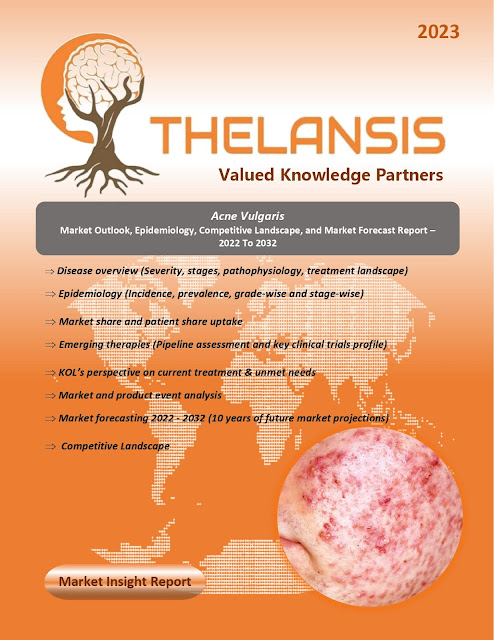Microscopic Polyangiitis (MPA) – Market Outlook, Epidemiology, Competitive Landscape, and Market Forecast Report – 2023 To 2033
Microscopic polyangiitis (MPA) is a small vessel vasculitis associated with antineutrophil cytoplasmic antibodies (ANCA). It primarily affects the kidneys, lungs, and peripheral nerves, although muscle involvement with myalgia is rare and typically diagnosed through muscle biopsy specimens showing necrotizing vasculitis. ANCA is present in only 70% of MPA cases at diagnosis, and most instances of limited MPA lack ANCA altogether. This suggests the involvement of other factors in its development, including:
Infectious
Causes: There is substantial overlap in the clinical presentation of infectious
diseases and MPA, leading to this association. Chronic nasal carriage of
Staphylococcus aureus has been implicated in relapsing granulomatosis with
polyangiitis (GPA).
Drugs:
Several drugs, such as hydralazine, thionamides, sulfasalazine, and
minocycline, have been linked to the occurrence of ANCA-associated vasculitis.
Genetic
Factors: genes like HLA-DP, HLA-DR3, and alpha-1 antitrypsin contribute to the
pathogenesis of ANCA-associated vasculitides.
MPA has
also been associated with silica exposure, which can induce autoimmunity in
individuals with genetic predispositions. Microscopic Polyangiitis (MPA) can
affect individuals of all age groups but typically develops around age 50. It
can affect both genders, with men potentially being more susceptible. Although
more common among Caucasians, MPA can affect people of any race or ethnic
background.
Approximately
90% of MPA patients experience improvement with appropriate treatment, and
roughly 75% achieve complete remission. The condition has a 5-year survival
rate of 75%.
The
estimated prevalence of Microscopic Polyangiitis (MPA) in the United States
ranges from 2.5 to 3.5 cases per 100,000 individuals, with an incidence ranging
from 0.75 to 1.2 cases per 100,000 persons.
Thelansis’s
“Microscopic Polyangiitis (MPA) Market Outlook, Epidemiology, Competitive
Landscape, and Market Forecast Report – 2023 To 2033" covers disease
overview, epidemiology, drug utilization, prescription share analysis,
competitive landscape, clinical practice, regulatory landscape, patient share,
market uptake, market forecast, and key market insights under the potential Microscopic
Polyangiitis (MPA) treatment modalities options for eight major markets (USA,
Germany, France, Italy, Spain, UK, Japan, and China).
KOLs insights of Microscopic
Polyangiitis (MPA) across 8 MM market from the centre of Excellence/ Public/
Private hospitals participated in the study. Insights around current treatment
landscape, epidemiology, clinical characteristics, future treatment paradigm,
and Unmet needs.
Microscopic
Polyangiitis (MPA) Market Forecast Patient Based Forecast Model (MS.
Excel Based Automated Dashboard), which Data Inputs with sourcing, Market
Event, and Product Event, Country specific Forecast Model, Market uptake and
patient share uptake, Attribute Analysis, Analog Analysis, Disease burden, and
pricing scenario, Summary, and Insights.
Thelansis Competitive Intelligence (CI) practice
has been established based on a deep understanding of the pharma/biotech
business environment to provide an optimized support system to all levels of
the decision-making process. It enables business leaders in forward-thinking
and proactive decision-making. Thelansis supports scientific and commercial
teams in seamless CI support by creating an AI/ ML-based technology-driven
platform that manages the data flow from primary and secondary sources.
Tags: Microscopic
Polyangiitis (MPA), Microscopic Polyangiitis (MPA) market
outlook, Microscopic Polyangiitis (MPA) competitive
landscape, Microscopic Polyangiitis (MPA) market
forecast, Thelansis, Primary market research, KOL insights, Competitive
Intelligence (CI)




Comments
Post a Comment